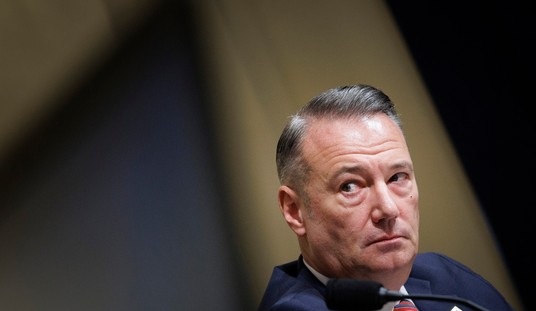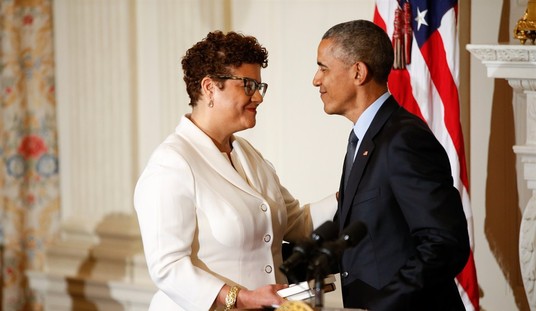The first rule of Settlement Club is that you don’t talk about Settlement Club. And the second rule of Settlement Club — ah, heck, the first fifty rules of Settlement Club is that you don’t talk about settlements in lawsuits with mutual gag rules in place. Apparently that didn’t sink in at CNN or the Washington Post after both media outlets decided to quietly end the litigation brought by Nicholas Sandmann. Their employees went on social media attempting to spin the settlement and suggest that Sandmann only got a minimal payment to shut him up.
Big mistake, Sandmann attorney Lin Wood made clear almost immediately. “I know how to deal with liars,” Wood tweeted, and warned that new lawsuits would be filed unless “heads rolled” at both outlets:
https://twitter.com/LLinWood/status/1287815888884858882?ref_src=twsrc%5Etfw%7Ctwcamp%5Etweetembed%7Ctwterm%5E1287815888884858882%7Ctwgr%5E&ref_url=https%3A%2F%2Flawandcrime.com%2Fmedia%2Flawyer-for-covington-catholics-nick-sandmann-threatens-to-sue-cnns-brian-stelter-and-others-for-tweeting-about-defamation-case%2F
https://twitter.com/LLinWood/status/1287845514474655747?ref_src=twsrc%5Etfw%7Ctwcamp%5Etweetembed%7Ctwterm%5E1287845514474655747%7Ctwgr%5E&ref_url=https%3A%2F%2Flawandcrime.com%2Fmedia%2Flawyer-for-covington-catholics-nick-sandmann-threatens-to-sue-cnns-brian-stelter-and-others-for-tweeting-about-defamation-case%2F
https://twitter.com/LLinWood/status/1287817475686531072?ref_src=twsrc%5Etfw%7Ctwcamp%5Etweetembed%7Ctwterm%5E1287817475686531072%7Ctwgr%5E&ref_url=https%3A%2F%2Flawandcrime.com%2Fmedia%2Flawyer-for-covington-catholics-nick-sandmann-threatens-to-sue-cnns-brian-stelter-and-others-for-tweeting-about-defamation-case%2F
This started with speculation that Sandmann had indeed gotten paid nothing more than “nuisance value.” Law & Crime wrote a pretty comprehensive overview of the social-media discussion of that premise after some attorneys unconnected to the case tried to read the tea leaves from various announcements in both cases. It’s worth reading, at least for the legal theories behind the speculation. That included a rather anodyne statement from Wood expressing his opinion that the speculation was “uninformed, errant nonsense,” but added that “questions about confidentiality and the timing of the settlement will have to be directed to others.” Wood didn’t threaten anyone over the speculation — because they were not party to the confidentiality agreement, and neither was Law & Crime.
That isn’t the case with Stelter, Rangappa, and Zak. They work for the respondents in these lawsuits and act as their agents. As soon as they published and expanded on the speculation, they characterized the settlement in terms their employer specifically agreed not to do. Not only does that open up new avenues for Sandmann against the Post and CNN, it might allow Wood to add the three as respondents in a new libel/defamation action.
Wood made it sound like that is a distinct possibility, and that the longer they remain employed, the stronger his new case against both outlets might be:
“There is a time to speak and a time to refrain from speaking,” attorney Lin Wood told the Washington Examiner. “I will not be speaking on this subject today beyond my tweets. But I will be taking actions.” …
It is standard in legal settlements for both parties to agree to keep the details of the final arrangement confidential, meaning neither CNN nor the Washington Post nor Sandmann’s attorneys are to discuss the dollar amount awarded or whether anyone admitted or denied guilt. The entire point of a settlement is that one party quietly pays another so that they can both walk away and never speak of the matter again, thus avoiding a costly, drawn-out, and possibly devastating trial.
Someone should tell that to certain CNN and Washington Post staffers.
There aren’t many ways for the two outlets to win this new argument. If, for instance, the speculation was accurate, it was still protected by a confidentiality agreement — and violating that could prompt much bigger damages and punitive action if it goes to trial. If the speculation is inaccurate, then CNN, WaPo, and its employees have once again defamed and libeled Sandmann — and will be in a much tougher position than the first time around. This practically screams malice, in both the normal and the legal sense.
So which is it? Bet on Door Number Two:
A spokesperson for the Washington Post said Monday that Zak’s tweet was deleted because he has no idea what he is talking about.
“Dan’s tweet was taken down because it had no basis in fact,” she told the Washington Examiner. “Dan has no knowledge about the agreement.”
Hence the First Fifty-One Rules of Settlement Club. But shouldn’t “journalists” have a first rule not to pass along speculation without checking facts first? Of course, if CNN and the Washington Post had such a rule, they never would have had to settle with Sandmann in the first place.








Join the conversation as a VIP Member